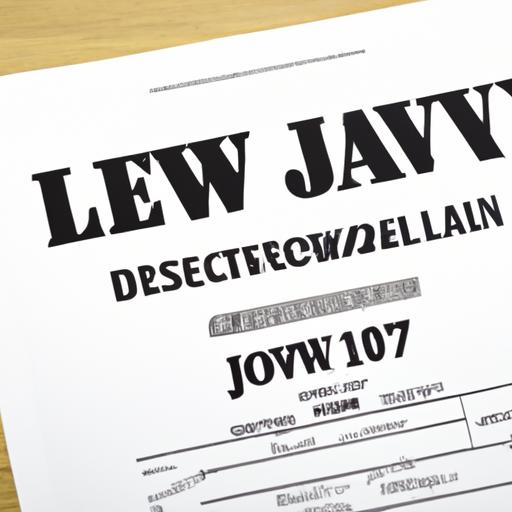DJ Law 2016: A Comprehensive Guide for DJs
Introduction: Understanding the DJ Law 2016
As a DJ, it is crucial to keep yourself informed about the latest laws and regulations in the industry. One such law that has significantly impacted DJs is the DJ Law 2016. This law was introduced to address concerns related to noise pollution and public safety associated with loud music in public places.
In this article, we will provide a detailed overview of the DJ Law 2016, its implications for DJs, and how you can ensure compliance as a DJ.
Overview of DJ Law 2016: Promoting Safety and Reducing Noise Pollution

The DJ Law 2016 comprises a set of regulations that govern the use of loud music in public places. Its primary goal is to address the concerns surrounding noise pollution and public safety associated with loud music. This law applies to various events, including concerts, parties, and other public gatherings where loud music is played.
One of the key requirements of the DJ Law 2016 is obtaining a license to play music in public places. This license is issued by the local government and is mandatory for any event where music will be played at high volume. By obtaining this license, the event is ensured to be held responsibly and safely, with measures in place to protect public safety and prevent noise pollution.
Another crucial aspect of the DJ Law 2016 is the compliance with noise limits. According to this law, music played at public events must not exceed a specific noise level set by the local government. This measure aims to safeguard public health and minimize noise pollution.
Overall, the DJ Law 2016 aims to ensure that public events are conducted responsibly and safely, with proper measures to protect public safety and minimize noise pollution. As a DJ, it is vital to understand the requirements of this law and ensure compliance to avoid any potential legal issues.
Recent Changes to DJ Law 2016: Stricter Limits and Increased Penalties
The DJ Law 2016 has undergone significant changes since its introduction. One notable change involves stricter noise limits set lower than before. DJs must exercise even more caution while playing music at public events to ensure compliance with the new noise limits.
Additionally, tougher penalties for non-compliance have been introduced. DJs who fail to obtain a license or comply with the noise limits may face substantial fines or legal action. These penalties reinforce the importance of taking the law seriously and addressing public safety and noise pollution adequately.
Fortunately, the introduction of online resources has been a positive change. Many local governments now provide online resources and guidance to help DJs understand and comply with the requirements of the law. This accessibility has made it easier for DJs to obtain licenses and adhere to noise limits, thereby reducing the risk of legal issues.
Implications of DJ Law 2016 for DJs: Licensing and Noise Compliance
The DJ Law 2016 has significant implications for DJs, particularly those performing at public events. The primary implication is the necessity of obtaining a license to play music in public places. Although the process can be time-consuming and costly, it is imperative to ensure compliance with the law.
Another implication pertains to noise compliance. DJs must ensure that the music they play at public events does not exceed the noise limits set by the local government. This can be challenging, especially in outdoor settings where noise can easily travel and amplify.
Failure to comply with the DJ Law 2016 can lead to severe consequences for DJs, including fines and legal action. It is essential for DJs to take the law seriously and fulfill all requirements to avoid potential legal issues.
Ensuring Compliance with DJ Law 2016: Key Steps for DJs
As a DJ, there are crucial steps you can take to ensure compliance with the DJ Law 2016:
1. Obtain the necessary license
Before playing music at any public event, ensure that you have obtained the required license from the local government. This license is mandatory for any event where music will be played at a high volume.
2. Comply with noise limits
Be aware of the noise limits set by the local government and ensure that you adhere to them when playing music at public events.
3. Use appropriate equipment
Ensure that you use suitable equipment capable of producing high-quality sound without exceeding the noise limits set by the local government.
4. Collaborate with event organizers
Work closely with event organizers to ensure that suitable measures are in place to protect public safety and prevent noise pollution.
By following these steps, you can ensure compliance with the DJ Law 2016 and avoid potential legal issues.
Conclusion: Embracing Compliance and Future Developments
In conclusion, the DJ Law 2016 is a crucial regulation that governs the use of loud music in public places. As a DJ, it is vital to stay updated with the latest laws and regulations in the industry to ensure compliance and avoid legal issues.
While the DJ Law 2016 has already made a significant impact, there is always room for improvement. Future changes to the law may address emerging concerns related to noise pollution and public safety.
ONEMAN. 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|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, a leading provider of DJ services, is committed to staying updated with the latest laws and regulations. We prioritize providing safe and responsible DJ services to our clients.
By working together as an industry, we can ensure that the DJ Law 2016 and other regulations effectively protect public safety and prevent noise pollution. DJs can continue offering high-quality music services while adhering to the law.
Let’s continue embracing compliance and contributing to a vibrant DJ industry in a responsible and enjoyable manner.

